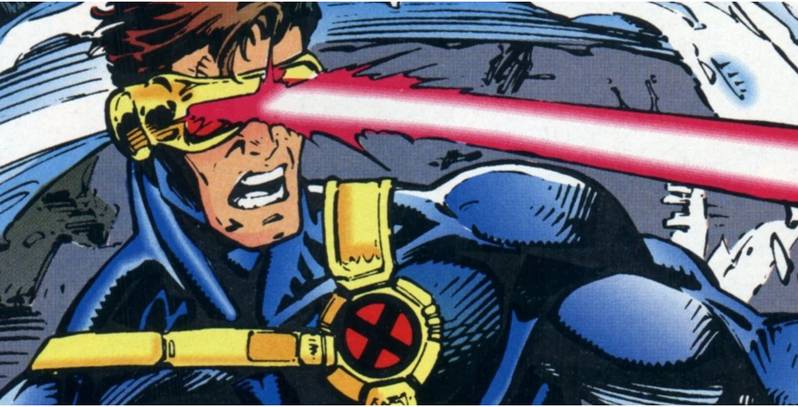"I have so many treatment plans to tweak tonight,
But the impeachment trial - OH MAN! That makes me mad - "
Apraxia
Aspiration precautions
Passy - Muir fitting
Phonological processes
Semantic features
Tracheoesophageal fistula
"It's a good thing I know what all this stuff is -
The day was a fast - forward conveyor belt of session after session;
I was Lucy Ricardo, and the chocolates were flying by!
I know what all this stuff is, and I know what to do....finally. "
Finally, the dinner for one is ready, eaten, washed - back to work.
"Is this the right goal? The best criterion?
When should I think about carryover?
I'm not sure s/he feels comfortable with what I am doing.
Did I make the right choice? All this PAPERWORK!
It isn't going to do itself, though...."
And then, very late at night, when all the other voices have quieted;
The rest of the words flow.
"The patient completed the X Test of X. Total raw score of X converted to %ile of X, with severity rating of X."
"Patient demonstrated in elicited conversation, sentence formulation skills seen in most persons her/his age".
It's midnight now. Only X more records to go.
Monday, January 27, 2020
Goodbye, Dr. Carey
I'd hardly call myself a trendsetter in speech-language pathology; - graduated from a reputable program at a state university, but not from a top-tier research-based training program with medical as well as educational affiliations -; having had many good jobs, in almost all the traditional worksites a speech - language pathologist might be found, though never hired by any big name clinical program; I have been honored to share knowledge with my peers at state and national meetings, and I have been given the huge opportunity to help in education and training of future professionals in the field. Are my writings or presentations cited anywhere?
I have worked alone, as well as part of a department of my peers. I've achieved nothing special so far, but I have always striven to sell the field to consumers, and represent speech-language pathology, to the best of my ability. With my work experiences running the gamut from residential programming for persons with severe/profound developmental disabilities, to residential/day programming for school - aged children with behavioral/emotional disorders, and from acute and outpatient rehabilitation for children/adults with neurogenic disorders, to adults residing in independent/assisted/memory care environments; - I have grown a persona, called elsewhere in this blog "the Doctor", who developed and helped manage treatment plans with a human face for the people I served, and who made the profession more than 'the best kept secret in town'.
Now, a little more about my professional identity. Long - time blog readers will realize that my goals for writing over the last 7 years, have included - WHAT THE HELL IS THIS SPEECH THERAPY ALL ABOUT? and HOW IS IT RELEVANT TO ME? I saw myself ideally, believe it or not, as the next "Cyclops" of the "X-Men". Stoic, strong, a disciplined leader; cleanly attired though conservatively, and incidentally, locked and loaded with the optic beam to right wrongs without any doubt. To that end, I developed the look that allowed Cyclops/The Doctor able to maneuver the environments he desired. The look, to my mind, gave me the appearance of a professional not intimidating, nor unreachable; nor irrelevant. All that was needed was for me to demonstrate how I could serve persons. This image fit in perfectly with my vision of what speech - language pathology was about: communication/cognition/swallowing occur everywhere; therefore, an SLP should look like a person you might see everywhere.
Still, inevitably - in many of the worksites I have frequented over the past ten years - I have been told that I couldn't wear anymore my business casual attire. I was instead required to wear a standardized uniform (often scrubs) in colors selected by administration; a uniform that marked me as part of a profession, or a guild. We were told, that physicians needed to take back the white coat. It was their mark of status, for over 100 years. SLP's were perturbed about that action, for those deep pockets in the white coats helped us carry all our stuff! We didn't want to take the mark of status away from physicians, but we wanted equal respect for our provision of evidence - based practice. The white coat, over our business casual clothing, conveyed to our consumers the sacredness of our commitment to their care. And now, it was gone.
Guild? Seriously?! This is the memory most of us have of guilds: just a group of guys, standing up for lollipop quality. Identical spit curls, identical sneers, identical cut to the outfits, and - an identically begrudging workday dance. And that is largely the history of the guild movement over the centuries, from the zenith of the Middle Ages to today....so what keeps the quality of therapy in a guild? It's the de facto monopoly over targeted goods and services, that is given to SLP's as a historical gift from the guilds. Wonderful. We were able to make ourselves over as a distinct specialty, making mitosis from the teachers and the elocutionists, the oral myologists and the speech coaches - to untangle tongues and get children off to a good start.
So, perhaps I am being too harsh on the decision of management where I work, to take away my individual "look" and reinforce that I am a member of a distinct class. After all, my therapist "guild" - yes, we look the same as PT and OT now - has provided some benefits:
* the profession empowers and promotes the interests of women
* the collection of therapists offers mutual benefit and support
* the consumers identify your role more easily
* the uniform allows you protection for your personal clothing
* the uniform supplies many small pockets, to compensate for the loss of two big pockets
But - I had to admit to myself - I was still not comfortable with inhabiting royal blue scrubs at work:
* the individual disciplines continue to rely upon a caste system; PT and OT grew roots in the medical setting, gaining the accompanying prestige; speech-language pathology was birthed separately.
* the mutual benefit and support; who has time with the productivity goals that are set?
* the consumers hear you are from "therapy" and say, "I still can't walk that well".
* the uniform doesn't have the power that Jack Nicholson (the Joker) attributed to it, when he reputedly counseled Michael Keaton (Batman): "Let the suit act, kid".
*the numerous scrub pockets still limit the SLP's ability to carry materials, tools, etc., throughout the treatment day. Productivity demands require you manage every spare minute carefully.
* ABOVE ALL, the guild identity in a work setting is a 'governor', a 1000 pound boulder on the SLP's back, that puts on the brakes against individual initiative, individual insight and individual conscience. It opens the door to the clinician suffering moral injury*.
The Doctor still lives. You have to look for that professional in the SLP's eyes, and not at what s/he wears.
*Wendy Dean, MD, "The Real Epidemic: Not Burnout but Moral Injury of Doctors, Unable to do right by Patients", https://www.wbur.org/commonhealth/2020/01/24/moral-injury-american-medicine; posted 1/24/20 and accessed 1/27/20
I have worked alone, as well as part of a department of my peers. I've achieved nothing special so far, but I have always striven to sell the field to consumers, and represent speech-language pathology, to the best of my ability. With my work experiences running the gamut from residential programming for persons with severe/profound developmental disabilities, to residential/day programming for school - aged children with behavioral/emotional disorders, and from acute and outpatient rehabilitation for children/adults with neurogenic disorders, to adults residing in independent/assisted/memory care environments; - I have grown a persona, called elsewhere in this blog "the Doctor", who developed and helped manage treatment plans with a human face for the people I served, and who made the profession more than 'the best kept secret in town'.
Now, a little more about my professional identity. Long - time blog readers will realize that my goals for writing over the last 7 years, have included - WHAT THE HELL IS THIS SPEECH THERAPY ALL ABOUT? and HOW IS IT RELEVANT TO ME? I saw myself ideally, believe it or not, as the next "Cyclops" of the "X-Men". Stoic, strong, a disciplined leader; cleanly attired though conservatively, and incidentally, locked and loaded with the optic beam to right wrongs without any doubt. To that end, I developed the look that allowed Cyclops/The Doctor able to maneuver the environments he desired. The look, to my mind, gave me the appearance of a professional not intimidating, nor unreachable; nor irrelevant. All that was needed was for me to demonstrate how I could serve persons. This image fit in perfectly with my vision of what speech - language pathology was about: communication/cognition/swallowing occur everywhere; therefore, an SLP should look like a person you might see everywhere.
Still, inevitably - in many of the worksites I have frequented over the past ten years - I have been told that I couldn't wear anymore my business casual attire. I was instead required to wear a standardized uniform (often scrubs) in colors selected by administration; a uniform that marked me as part of a profession, or a guild. We were told, that physicians needed to take back the white coat. It was their mark of status, for over 100 years. SLP's were perturbed about that action, for those deep pockets in the white coats helped us carry all our stuff! We didn't want to take the mark of status away from physicians, but we wanted equal respect for our provision of evidence - based practice. The white coat, over our business casual clothing, conveyed to our consumers the sacredness of our commitment to their care. And now, it was gone.
Guild? Seriously?! This is the memory most of us have of guilds: just a group of guys, standing up for lollipop quality. Identical spit curls, identical sneers, identical cut to the outfits, and - an identically begrudging workday dance. And that is largely the history of the guild movement over the centuries, from the zenith of the Middle Ages to today....so what keeps the quality of therapy in a guild? It's the de facto monopoly over targeted goods and services, that is given to SLP's as a historical gift from the guilds. Wonderful. We were able to make ourselves over as a distinct specialty, making mitosis from the teachers and the elocutionists, the oral myologists and the speech coaches - to untangle tongues and get children off to a good start.
So, perhaps I am being too harsh on the decision of management where I work, to take away my individual "look" and reinforce that I am a member of a distinct class. After all, my therapist "guild" - yes, we look the same as PT and OT now - has provided some benefits:
* the profession empowers and promotes the interests of women
* the collection of therapists offers mutual benefit and support
* the consumers identify your role more easily
* the uniform allows you protection for your personal clothing
* the uniform supplies many small pockets, to compensate for the loss of two big pockets
But - I had to admit to myself - I was still not comfortable with inhabiting royal blue scrubs at work:
* the individual disciplines continue to rely upon a caste system; PT and OT grew roots in the medical setting, gaining the accompanying prestige; speech-language pathology was birthed separately.
* the mutual benefit and support; who has time with the productivity goals that are set?
* the consumers hear you are from "therapy" and say, "I still can't walk that well".
* the uniform doesn't have the power that Jack Nicholson (the Joker) attributed to it, when he reputedly counseled Michael Keaton (Batman): "Let the suit act, kid".
*the numerous scrub pockets still limit the SLP's ability to carry materials, tools, etc., throughout the treatment day. Productivity demands require you manage every spare minute carefully.
* ABOVE ALL, the guild identity in a work setting is a 'governor', a 1000 pound boulder on the SLP's back, that puts on the brakes against individual initiative, individual insight and individual conscience. It opens the door to the clinician suffering moral injury*.
The Doctor still lives. You have to look for that professional in the SLP's eyes, and not at what s/he wears.
*Wendy Dean, MD, "The Real Epidemic: Not Burnout but Moral Injury of Doctors, Unable to do right by Patients", https://www.wbur.org/commonhealth/2020/01/24/moral-injury-american-medicine; posted 1/24/20 and accessed 1/27/20
Saturday, January 11, 2020
From the front lines: the evidence from concussion care
"There was a call one day from the ER, that a teenager had been brought in for severe concussion that afternoon. We learned this - my TBI team and I - when we had reached the ICU to see the kid; - that he had been playing 'mailbox baseball'; you know - swinging a baseball bat from a speeding car, to knock the boxes off their supporting post. He had swung instead of ducked, and the mailbox took HIM out!
"Of course, we wanted to see him as soon as possible, to get baseline measurements of his function and, to start teaching any friends or family that might be near. Couldn't do that without a doctor's OK, though....the surgeon came from the ICU room, heard our pitch and then, floored us - absolutely LAID US OUT by his next statement: "He was drunk. He'll be OK". No referral. Dammit! We had been fine-tuning our diagnostic profiles for weeks, and now we're being told we can't help the kid - that recovering cognition is an afterthought?!?! What a short-sighted poltroon! Doctors have the power, though, dammit all. But they can't or won't do what we do....so, keep selling ourselves, was my lesson from that day. The surgeon thinks he can do speech therapy, but -
"Concussion, or mild traumatic brain injury (mTBI), can be extremely unpredictable when it comes to chronic effects. Not only are there the classic physical disruptions to consider; tinnitus, dizziness and headache - but the onset of cognitive challenges to attention, memory and higher cognitive functions; - and then there are often the emotional challenges a person with mTBI will face, when their world gets upended by changes that can occur. AM I CRAZY? - some persons will ask that, when they've told their PCP, a psychiatrist, a pastor, an employer or a teacher about their symptoms. You can use your bag of tricks to help them get back on the path to their life.
"Let the speech - language pathologist do speech therapy. We're cheaper than neuropsychology; we are well versed in turning diagnostic data into action; we aren't afraid to leave the sterile treatment room to achieve a real - life outcome; and we're good at teamwork, because we are the communication experts. We know how to achieve a connection. We can help prevent long-term disability, and help head off the development of neuroses. We can advocate for our patients, for their supports, and for the human service system. Just let us make the connection."
He said that to a young protege' nearby, 22 years old or so, as a new round of drinks were served to the table of conventioneers for the speech and hearing meeting. The night was young.
"Of course, we wanted to see him as soon as possible, to get baseline measurements of his function and, to start teaching any friends or family that might be near. Couldn't do that without a doctor's OK, though....the surgeon came from the ICU room, heard our pitch and then, floored us - absolutely LAID US OUT by his next statement: "He was drunk. He'll be OK". No referral. Dammit! We had been fine-tuning our diagnostic profiles for weeks, and now we're being told we can't help the kid - that recovering cognition is an afterthought?!?! What a short-sighted poltroon! Doctors have the power, though, dammit all. But they can't or won't do what we do....so, keep selling ourselves, was my lesson from that day. The surgeon thinks he can do speech therapy, but -
"Concussion, or mild traumatic brain injury (mTBI), can be extremely unpredictable when it comes to chronic effects. Not only are there the classic physical disruptions to consider; tinnitus, dizziness and headache - but the onset of cognitive challenges to attention, memory and higher cognitive functions; - and then there are often the emotional challenges a person with mTBI will face, when their world gets upended by changes that can occur. AM I CRAZY? - some persons will ask that, when they've told their PCP, a psychiatrist, a pastor, an employer or a teacher about their symptoms. You can use your bag of tricks to help them get back on the path to their life.
"Let the speech - language pathologist do speech therapy. We're cheaper than neuropsychology; we are well versed in turning diagnostic data into action; we aren't afraid to leave the sterile treatment room to achieve a real - life outcome; and we're good at teamwork, because we are the communication experts. We know how to achieve a connection. We can help prevent long-term disability, and help head off the development of neuroses. We can advocate for our patients, for their supports, and for the human service system. Just let us make the connection."
He said that to a young protege' nearby, 22 years old or so, as a new round of drinks were served to the table of conventioneers for the speech and hearing meeting. The night was young.
Subscribe to:
Comments (Atom)











